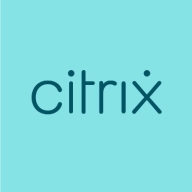

Citrix XenServer and OpenVZ compete in the virtualization platform category. Citrix XenServer holds an advantage with enterprise-level features, while OpenVZ offers superior resource efficiency and management ease in Linux environments.
Features: Citrix XenServer provides advanced virtualization capabilities, live migration, and strong compatibility with both Windows and Linux systems. Its high-availability and performance optimization are ideal for enterprises. OpenVZ features lightweight containerization, efficient resource sharing, and flexibility tailored for Linux-based applications.
Ease of Deployment and Customer Service: Citrix XenServer offers a streamlined deployment process with comprehensive documentation and professional customer service, ensuring a smooth experience for enterprises. OpenVZ benefits from a community-driven approach with flexible configurations but requires deeper Linux expertise for deployment and troubleshooting, appealing to technical users seeking customization.
Pricing and ROI: Citrix XenServer entails higher initial costs due to its licensing model, suitable for enterprises aiming for high ROI through powerful features. OpenVZ, being free and open-source, minimizes setup costs, offering a cost-effective solution for organizations focused on budget constraints and achieving satisfactory returns through resource efficiency.
| Product | Market Share (%) |
|---|---|
| Citrix XenServer | 4.4% |
| OpenVZ | 0.6% |
| Other | 95.0% |
| Company Size | Count |
|---|---|
| Small Business | 29 |
| Midsize Enterprise | 8 |
| Large Enterprise | 18 |
Citrix XenServer provides virtualization with high availability and robust security, offering seamless VM migration and centralized management through XenCenter. Its expansive compatibility and integration enhance its appeal, particularly for SMBs.
Citrix XenServer is recognized for its user-friendly virtualization capabilities, facilitating dynamic scalability and efficient resource management. It supports a wide range of operating systems and integrates with Citrix solutions for improved operations. Businesses benefit from its affordability and ease of deployment. Despite its strengths, users seek improvements in third-party tool integration, network and backup management, and storage flexibility. High costs, limited Linux support, system complexity, technical support, and hardware compatibility remain challenges. An updated and intuitive interface is in demand for more seamless operations across platforms.
What are the key features of Citrix XenServer?In diverse industries, Citrix XenServer is leveraged for server and desktop virtualization, cloud automation, and infrastructure management. Many deploy it for virtual desktop infrastructure, application delivery, on-premises data centers, and to support Citrix application delivery like XenApp and XenDesktop. Enterprises migrating from VMware often find Citrix XenServer cost-efficient for these applications, serving as a main computing platform for enterprise applications including ERP systems and SQL Servers.
We monitor all Server Virtualization Software reviews to prevent fraudulent reviews and keep review quality high. We do not post reviews by company employees or direct competitors. We validate each review for authenticity via cross-reference with LinkedIn, and personal follow-up with the reviewer when necessary.